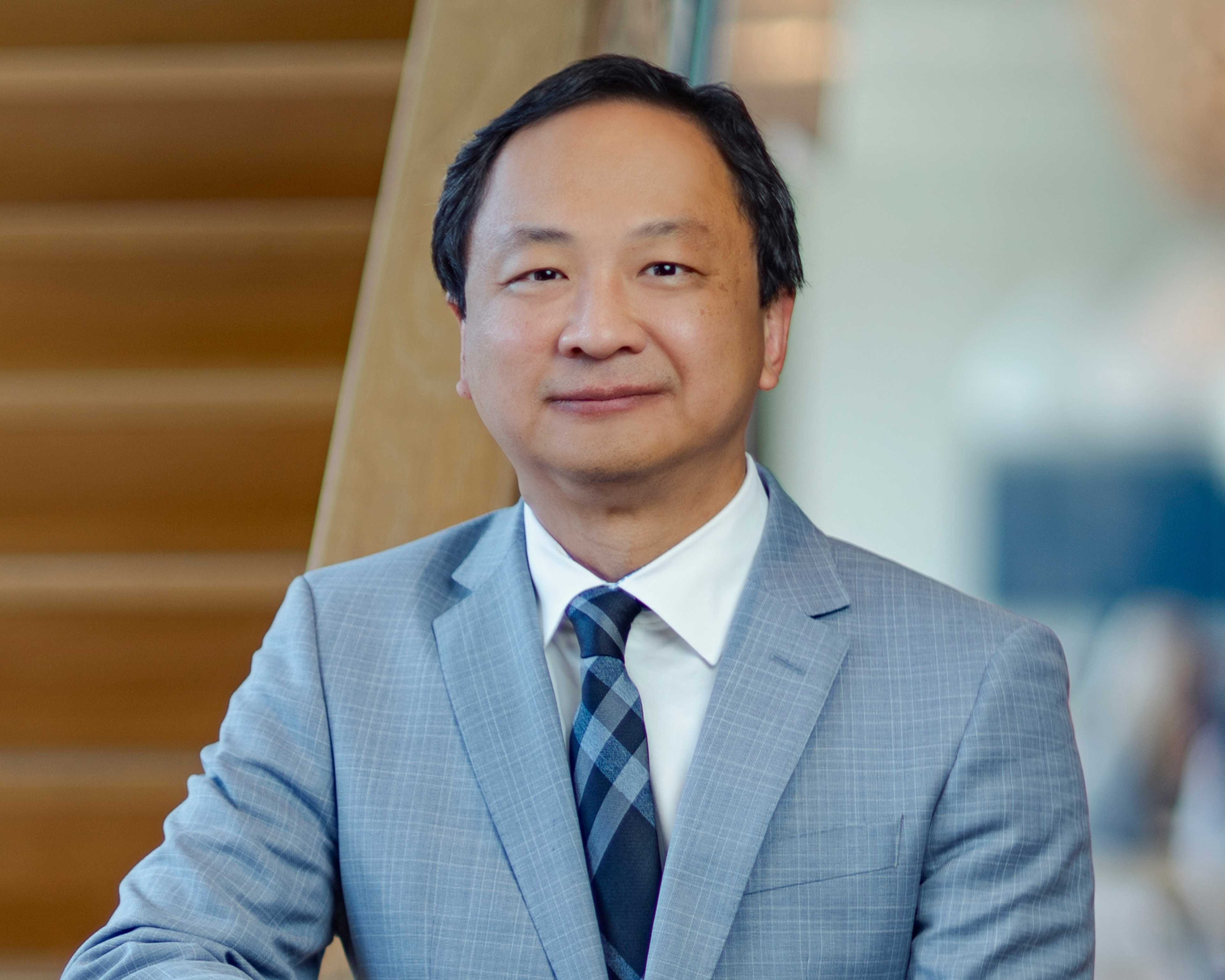


‘Alternative data allows you to take a deeper look’
Novel data sources and techniques can help you tap into alternative alpha. We discuss this and other topics with Mike Chen who recently joined Robeco as head of alternative alpha research. Previously, he was the head of sustainable investments at PanAgora Asset Management.
Summary
- Alternative data gives you a more complete view of a company
- This additional information can be used to harvest alternative alpha
- There is significant overlap between next-generation quant and sustainability
“I have never really had a grand plan on how my career should turn out. I got into finance because I studied stochastic optimization in graduate school. I graduated in the middle of the 2000s and since derivatives were the talk of the town at that point, it was a sensible channel for gainful employment given my affinity for math.”
“But a few years after I joined that world, the global financial crisis sent a shock wave that rippled through the system. I did some soul searching and, lo and behold, discovered that the buy-side of finance was very interesting, involving a lot of different disciplines. Investors do not buy securities only because they are cheap; behavioral and social elements also influence investment decisions.”
“Although it was a tricky environment to navigate in 2009-10, Google at the time was setting up their own trading desk to manage their assets, and I was fortunate to be able to seize the opportunity. After arriving at Google, I started to really appreciate the power of data and algorithms. Back then, it was still early days in this field and the concept of nowcasting was popularized by the chief economist at Google, Hal Varian, who published an academic paper on the topic.”
“Witnessing how you could gain insights through the use of data really piqued my interest. And in a bid to satisfy my curiosity, I found my way to Blackrock, specifically to their Scientific Active Equity unit. This was a great experience for me as I was able to put my education from Google into practice. It involved the use of non-standard financial information – or what is now termed alternative data – to examine the performance of companies beyond a financial statement perspective.”
“From alternative data, you naturally gravitate towards algorithms, machine learning (ML), natural language processing (NLP) and so on, as these are some of the necessary tools for analyzing unstructured data. So I have been on this journey for 17 years. And so far, so good. Finance is an evergreen field as there is always a quandary that perplexes the market. This makes it fascinating, so I am very lucky in that sense. Even though I began with no grand plan, it has worked out well so far.”
So what led you to join Robeco?
Robeco approached me with an exciting challenge of developing and driving its alternative alpha offering. This grabbed my attention given that it is a big area of interest for me. To be honest, I initially knew very little about Robeco as I had worked in the US for my entire professional career. But after doing my homework, I was impressed by its historical heritage, global presence as well as its well-regarded quant and sustainability capabilities.”
“As Americans, we also draw a lot of inspiration from our European peers in terms of thought leadership in the field of sustainability. And given that it is close to my heart, the opportunity to take my career to the next level, particularly from a sustainability perspective, really appealed to me. Again, working for a European firm was never part of a grand plan, but the nature of the opportunity attracted me.”
Discover the value of quant
Subscribe for cutting-edge quant strategies and insights.
And what is your initial impression?
“First of all, I have been pleasantly surprised by the level of talent in our quant research team. Also, the team culture is refreshing as my colleagues are very open and collaborative. One of the things I enjoy about Dutch culture is the directness and high level of transparency. This can be discomforting for some people, but I find it stimulating as I believe open communication is critical from a research perspective. Research is underpinned by ideas and a conducive culture promotes contributions from everyone. What you do not want is a situation where junior colleagues fail to speak up in fear of contradicting the views of their senior peers.”
“From an infrastructure perspective, it is probably the best I have seen. My colleagues spent three years building this cutting-edge, cloud-based infrastructure, and now virtually everything that we do can be done on the cloud using the latest architecture. Importantly, this is accompanied by well-written and well-documented code. Setting this up is no mean feat as it requires significant investment and lots of time. But it builds a great foundation that I believe will yield dividends down the road for the quant research team and the organization as a whole.”
What is the power and appeal of alternative data?
“Using an analogy, investing in a company is similar to buying a house. You want to do your due diligence before making a decision. While traditional data based on financial statements can shed light on key characteristics, it does not give you the complete view. In terms of a house, this could be the square footage of the property, number of rooms, amenities, etc. But additional information like the structural integrity of a building, level of natural air flow and lighting as well as the friendliness of neighbors can influence the decision of a prospective buyer. This is more akin to alternative data.”
“From a finance perspective, alternative data allows you to take a deeper look at intangible elements. For example, it can give you insights on issues such as brand value, employee satisfaction, innovation, intellectual property, incentive alignment structures, stakeholder sentiment and workforce diversity. It can also provide inputs for nowcasting to track the real-time performance of a company. In our view, this additional information is valuable alongside traditional data from financial statements that are reported with a lag and are backward-looking.”
“While traditional data is a significant driver of returns, we also believe that alternative data influences security prices, thereby allowing investors the potential to capture alternative alpha. Indeed, the extra information gives you a more complete view of a company, from which investors can then form their decisions.”
Is this the future of quant investing – the so-called next-generation quant?
“Quantitative finance has a really long and renowned history, both in academia and practice. This was catalyzed by the seminal Fama-French factor model which formed the basis of quant investing 1.0. And according to an academic study, well-established factors roughly account for two-thirds of the cross-sectional variation in stock returns. I believe the remaining one-third can be partially explained by alternative data that is orthogonal to the information derived from these factors.”
“We are therefore working on next-generation quant applications and solutions which will serve as complements to quant investing 1.0. I would define next-generation quant as the use of alternative data and advanced statistical techniques – such as ML and NLP – that give you information on intangibles, forward-looking insights, real-time developments and sentiment to harvest alternative alpha.”
“At Robeco, we are cognizant of this opportunity and are scaling up on next-generation quant investing, and I am very honored to be able to contribute to this effort. I firmly believe that skilled people form the necessary foundation to accelerate our journey. Asset management is a people business that is driven by creativity, passion and technical capability. And I believe Robeco’s quant research team has this in spades. So what I intend to do is to act as a catalyst to create a flywheel effect through encouraging creativity and idea generation.”
“I believe the entrenched collaborative culture at Robeco makes this possible, and with my experience in the field, I hope to contribute towards driving a mindset of experimentation and innovation. Importantly, we have strong support from senior management to pursue this approach.“
How does sustainability fit into this picture?
“There is a significant amount of overlap between next-generation quant and sustainability. Historically, certain aspects of sustainability have been plagued by their backward-looking nature and reporting lags, while others have lacked concrete methods of measurement. This is where alternative data and advanced techniques can play a role.”
“For example, these novel methods could be used to measure corporate culture. Looking at how people describe their company and its values could be a way to get some insight. This could be presented in the form of audio or textual data (alternative data) that could be analyzed using NLP methods (advanced techniques). My hope is to marry new data sources and techniques to further integrate sustainability in our research program and solutions.”
Important information
This information is for informational purposes only and should not be construed as an offer to sell or an invitation to buy any securities or products, nor as investment advice or recommendation. The contents of this document have not been reviewed by the Monetary Authority of Singapore (“MAS”). Robeco Singapore Private Limited holds a capital markets services license for fund management issued by the MAS and is subject to certain clientele restrictions under such license. An investment will involve a high degree of risk, and you should consider carefully whether an investment is suitable for you.





















